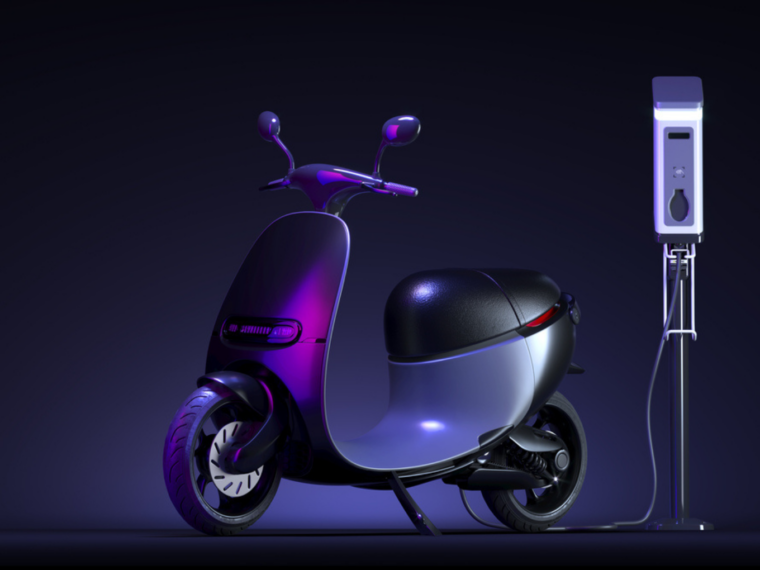
SUMMARY
In a letter to the NITI Aayog, the SMEV said that the FAME-II fiasco has resulted in a complete regression of the objectives of the national emobility charter and adversely impacted the EV industry
The SMEV called the current state of affairs a “corrosive transformation into an elitist program” and said low-end commuter scooters are losing out to the premium segment due to issues with FAME-II
Meanwhile, sources told Inc42 that the government is unlikely to extend FAME-II beyond March 31, 2024 but may come out with FAME-III scheme
Amid the ongoing issues with FAME-II, including probe against original equipment manufacturers (OEMs) and slashing of subsidies, industry body Society of Manufacturers of Electric Vehicles (SMEV) said that the “detrimental actions” of the Centre over the last year or so have “contaminated” the national emobility charter.
In a letter to government think tank NITI Aayog, the SMEV said that the FAME-II fiasco has resulted in a complete regression of the objectives of the mobility charter and adversely impacted the electric vehicle (EV) industry.
“The Ministry of Heavy Industries’ (MHI) actions over the past 18 months i.e., withholding subsidies, demanding retrospective claw backs of subsidy given in 2019, delisting companies from NAB (National Automotive Board) portal and now its latest move to slash subsidies, is likely to impact sales and substantially delay the process of EV adoption and penetration in the country,” the industry body said and asked NITI Aayog to review the FAME-II policy.
It is pertinent to note that issues around the FAME-II policy started around August last year when the MHI started focussing on domestic manufacturing of components used in EVs and domestic value addition.
First, Hero Electric and Okinawa Autotech came under the government’s scanner for allegedly flouting minimum localisation norms of the FAME-II scheme. Subsequently, a probe was also started against several other players, including Revolt and Ampere Vehicles.
While this probe was ongoing, Ola Electric, Ather Energy, TVS, and Hero MotoCorp were alleged to have kept their vehicle prices artificially lower to claim FAME-II subsidies. Subsequently, these companies agreed to refund the customers.
Launched in 2019 with a total outlay of INR 10,000 Cr, the FAME-II scheme aims to support 10 Lakh electric two-wheelers, 5 Lakh electric three-wheelers, 7,000 ebuses, and 55,000 electric four-wheeler passenger cars through subsidies.
Earlier, electric two-wheelers were to get a maximum subsidy of 40% on the total cost of the vehicles under FAME-II if their maximum ex-factory price was INR 1.5 Lakh per unit. However, after finding misappropriation of FAME-II subsidies by EV players, the government recently slashed the incentives to 15% of the ex-factory price of electric two-wheelers from 40% earlier. It also cut the demand incentive to INR 10,000/kWh from INR 15,000/kWh earlier.
“The triple whammy of subsidy blockade, claw back notices and embargo on future sales are sabotaging the FAME II policy. It is evident that the emobility ambitions of the country have been impacted as the scheme could not make-up even 50% of its mandated target over 5 years, since 2019,” Sohinder Singh Gill, DG of SMEV, said in the letter.
Gill is also the CEO of Hero Electric.
‘FAME-II An Elitist Program Now’
Gill also said that the issues with the scheme and the deviation from the vision of NITI Aayog raises questions about the intended mass movement that was envisioned for emobility. He claimed that low-end commuter scooters are losing out to the premium segment due to these issues.
“In a contrarian effect, not seen elsewhere, the FAME scheme has spawned a spurt in the premium EV bikes at the cost of commuter scooters,” he added.
It must be noted that despite the issues around FAME-II, premium players like Ola Electric and Ather Energy have continued to gain more market share.
The electric two-wheeler registrations crossed the 1 Lakh mark for the first time last month, led by the growing sales of Ola Electric, Ather Energy, and TVS Motors. Meanwhile, players like Hero Electric and Okinawa Autotech, which largely sell commuter scooters and low-range bikes, have witnessed a declining trend over the past few months.
The SMEV called the current state of affairs a “corrosive transformation into an elitist program”, which neglects the principles of inclusivity and accessibility.
“It is disheartening to witness how these policy initiatives have transformed from a progressive and inclusive movement into an elitist pitch, deviating from the very essence of Niti Aayog’s prescriptions,” the industry body said.
A Full-Scale Meltdown Ahead For EV Players?
Earlier, in April, the SMEV wrote to the government saying that two-wheeler EV makers did not receive subsidies for 4.5 Lakh vehicles out of the 9.6 Lakh vehicles that the government claimed to have been supported under FAME-II.
Highlighting the adverse impact of the FAME-II conundrum on the EV industry, the SMEV, in the latest letter, said, “The OEMs are struggling to stay afloat; investors are wary; banks are withdrawing; employees are fleeing; debts are rising, and closures are the next imminent step.”
It must be noted that following the recent cut in FAME-II subsidies, several EV players, including Ather Energy, Ola Electric, AMO Mobility, River, and Matter, have raised their vehicle prices.
However, Hero Electric has not raised the prices of its escooters. Speaking to Inc42, Gill said that unlike the customers of these premium players, Hero Electric caters to the low-budget commuter segment. Hence, it cannot give such a shock to its customers.
Although premium escooters and ebike segments are seeing a steady growth, the price rise could dampen the demand in the near-term in these segments as well. For instance, Ola Electric’s vehicle registrations in the month of June stood at 6,564 units as of Friday (June 16), as per Vahan data. This is not even 25% of the startups’ total vehicle registrations in May. The Bhavish Aggarwal-led startup saw registrations of 28,563 units last month.
Similarly, Ather Energy’s total vehicle registrations stood at a mere 1,417 units till June 16. In May, the company saw total vehicle registrations of 15,384 units.
What’s Next For FAME?
Amid the hiccups with FAME-II, the EV industry has been demanding an extension of the scheme, which is currently scheduled to end on March 31, 2024. Recently, a parliamentary committee on EVs also recommended extension of the scheme.
However, sources told Inc42 that while there are no plans to extend the FAME-II scheme, the Centre may come out with a new version of the scheme, FAME-III.
The government has not taken a final call on the issue and is currently seeking suggestions and views from the industry.
Commenting on the need for FAME-III, Sushant Kumar, founder and MD of AMO Mobility, said it will be essential to boost India’s EV ecosystem and promote the adoption of EVs.
If the FAME-III policy is rolled out, it should make the consumers the direct beneficiary rather than them being one of the many players benefitting. Putting consumers as key entities in the EV ecosystem will help implement the policy productively and sustainably, he added.
Echoing similar sentiment, Jayapradeep V, chief business officer at Raptee, said, “The sudden reduction of FAME-II to 15% has just started impacting the EV industry at the moment. Therefore, to ensure faster adoption of EVs by 2030 by continuing the momentum, customer-side incentives from the government are very critical and will be a deal maker/breaker for the industry.”
Increase in EV adoption on the back of government subsidies would lead to improvement in volumes which would help OEMs in cost optimisation, thereby further improving adoption, he added.
However, Gill doesn’t have high hopes from FAME-III. He said even if the government comes out with FAME-III, the subsidies are likely to be trimmed further from the existing level.
As such, industry players should buckle up and rely less on government support and more on a robust business model, he added.






























 Ad-lite browsing experience
Ad-lite browsing experience